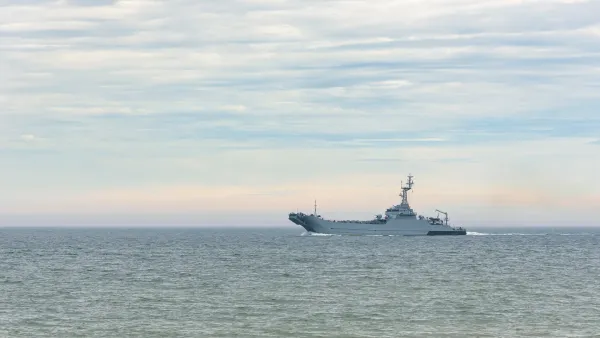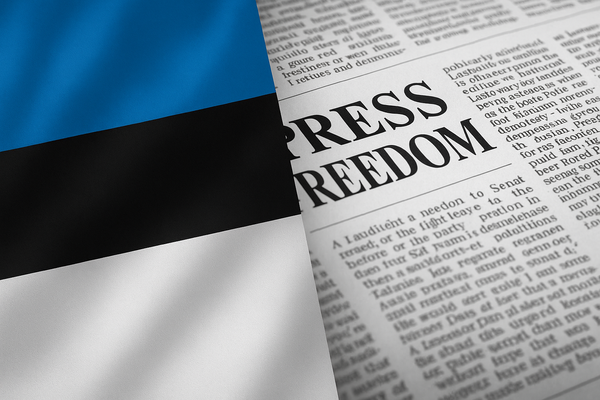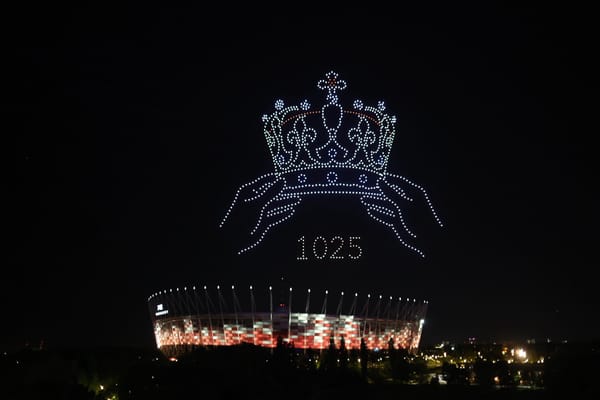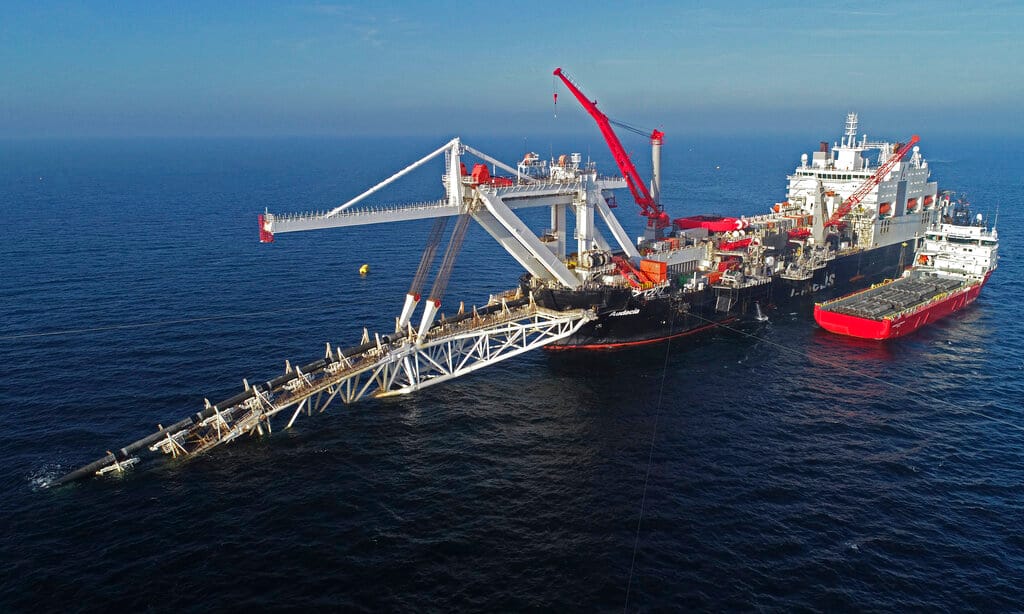
Trump-Putin detente could revive Nord Stream 2
The US and Russia are discussing the potential reopening of the Nord Stream 2 gas pipeline, raising significant concerns across Europe, according to media reports.
The natural gas pipeline, which runs beneath the Baltic Sea, aimed to double Russian gas exports to Germany. However, it has remained inactive since its completion in 2021 due to geopolitical tensions and sanctions after Russia’s invasion of Ukraine the following year.
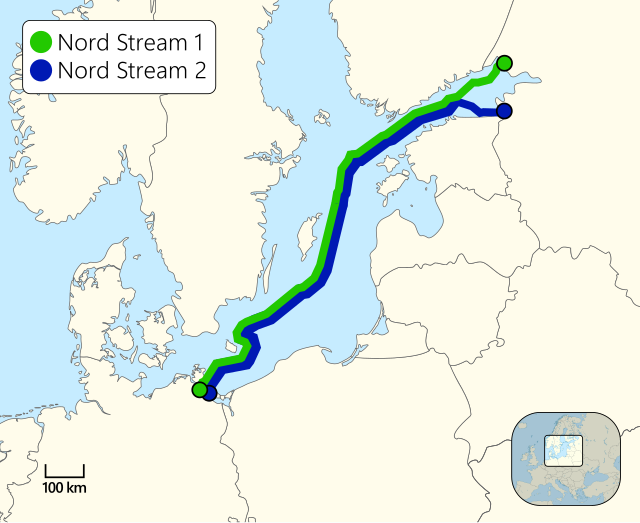
Secret talks could see US profit
Now reports have emerged that secret negotiations have reportedly taken place between associates of US President Donald Trump and Russian President Vladimir Putin.
The proposed deal involves US investors acquiring a stake in Nord Stream 2, potentially allowing the country to profit from Russian gas exports if sanctions are lifted following a ceasefire in Ukraine, according to US daily The New York Times.
US financier Stephen P. Lynch has reportedly expressed interest in buying the pipeline and has requested a licence from the US Treasury Department, as the entities involved are currently subject to sanctions.
Former East German secret police officer and now Putin confidant Matthias Warnig is said to be brokering the negotiations.
Mixed reactions from CEE leaders
Reactions to the prospect of reviving Nord Stream 2 differed across Central and Eastern Europe (CEE). The EU has reiterated its commitment to diversifying energy sources to ensure security.
Poland views the pipeline as a threat to both EU unity and regional security, arguing that it increases Europe’s dependence on Russian gas while bypassing traditional transit countries, and undermines EU efforts to diversify energy sources.
The Baltic states Estonia, Latvia and Lithuania have similar concerns. Estonian officials called the pipeline a geopolitical instrument rather than a purely commercial venture, adding that any revival of the project would hurt European security interests.
Other CEE countries are more ambivalent: Slovakia has warned that the pipeline could reduce its transit revenues and weaken its strategic role in European gas distribution, while also echoing Ukraine’s concerns about the broader geopolitical stakes.
Hungarian Prime Minister Viktor Orban, by contrast, has signalled a willingness to negotiate energy supplies directly with Russia, urging the EU to avoid "ideological entrenchment" in energy policy. Hungary’s government has maintained energy ties with Russia throughout the war, with Hungarian Foreign Minister Peter Szijjarto visiting Moscow multiple times to negotiate continued gas deliveries.
Ukrainian President Volodymyr Zelenskyy has described Nord Stream 2 as a "dangerous geopolitical weapon" of the Kremlin. Maxim Timchenko, CEO of Ukraine’s largest private energy company DTEK, recently said any return to Russian pipelined gas would be a mistake.
Reopening closed chapter
What had seemed a closed chapter was reopened. In September 2022, an underwater explosion destroyed three of the four Nord Stream pipelines that connected the Russian and German coasts via the Baltic Sea. A few months after the invasion, Nord Stream 2 was history.
However, Russian Foreign Minister Sergei Lavrov last week asked whether "restoring normal energy supply to Europe" is "only an interest of the US and Russia?", adding that "perhaps it will be of interest if the Americans use their influence in Europe and persuade it not to reject Russian gas."
German chancellor-in-waiting Friedrich Merz has emphasised the need to reduce dependence on Russian energy. For Merz, the priority is to rearm against the Russian threat, not return to dependence. However, the voices speculating about reopening the pipeline come from within his own CDU party, historically less tied to Russia than the Social Democratic Party (SPD) of former German chancellor Gerhard Schroder, who chaired the Nord Stream board after leaving office in 2005.
Christian Democratic Union of Germany (CDU) MP Thomas Bareiss wrote on social media: "If we look two years ahead, there could be surprises. When peace reigns again and arms fall silent between Russia and Ukraine… relations will normalise, embargoes will be lifted sooner or later, and of course gas will be able to flow again, perhaps this time through a pipeline under US control."
CDU MP Roderich Kiesewetter argued that the ongoing coalition talks with the SPD "should exclude the reactivation of Nord Stream to cut speculation and pro-Russian ambitions off at the root".
Franziska Brantner, co-leader of the Greens, responded: "The dangerous thing is how quickly people are talking about doing business again, even though there is no peace agreement. It is not hypothetical," she added, "when you hear CDU politicians talking so concretely about it, and when offices are already working on it in very concrete ways."
Lynch told The Wall Street Journal in November that reviving Nord Stream would represent "a unique opportunity to achieve US and European control of the infrastructure".
However, even in the event of a political thaw, technical and environmental hurdles remain formidable, not least as the 2022 undersea explosions rendered both Nord Stream 1 and 2 non-operational. A Swiss-based operator declared Nord Stream 2 AG insolvent in early 2023, and extensive damage assessments remain classified.
Moreover, the EU’s Green Deal targets and methane reduction rules could pose significant regulatory barriers to any attempt at recommissioning the pipeline. Energy analysts have stressed that a project restart would face a complex legal and political landscape, particularly in Germany and the European Commission.

